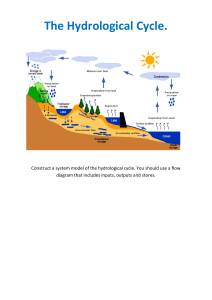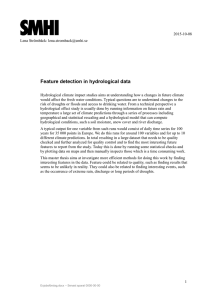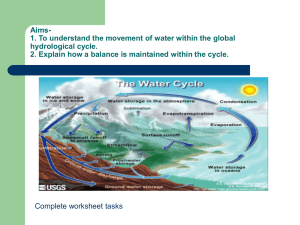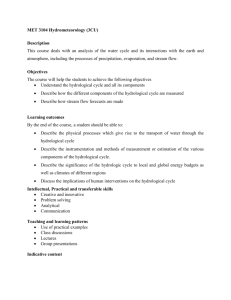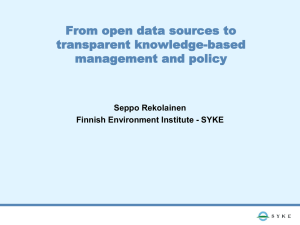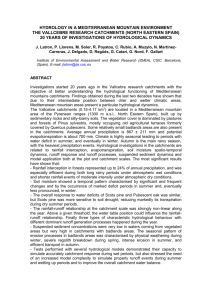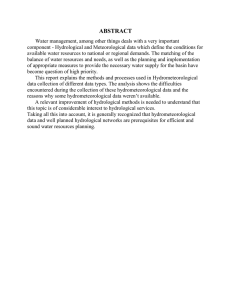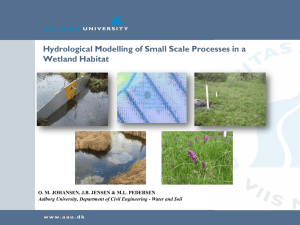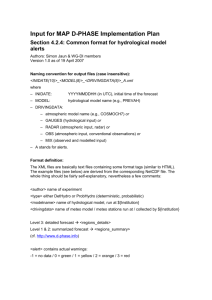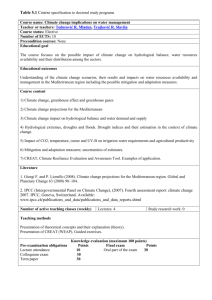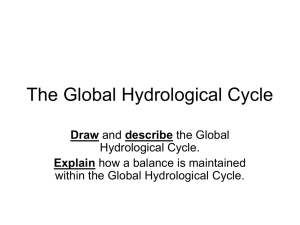HYDROLOGY AND WATER RESOURCES MANAGEMENT GES 410
advertisement
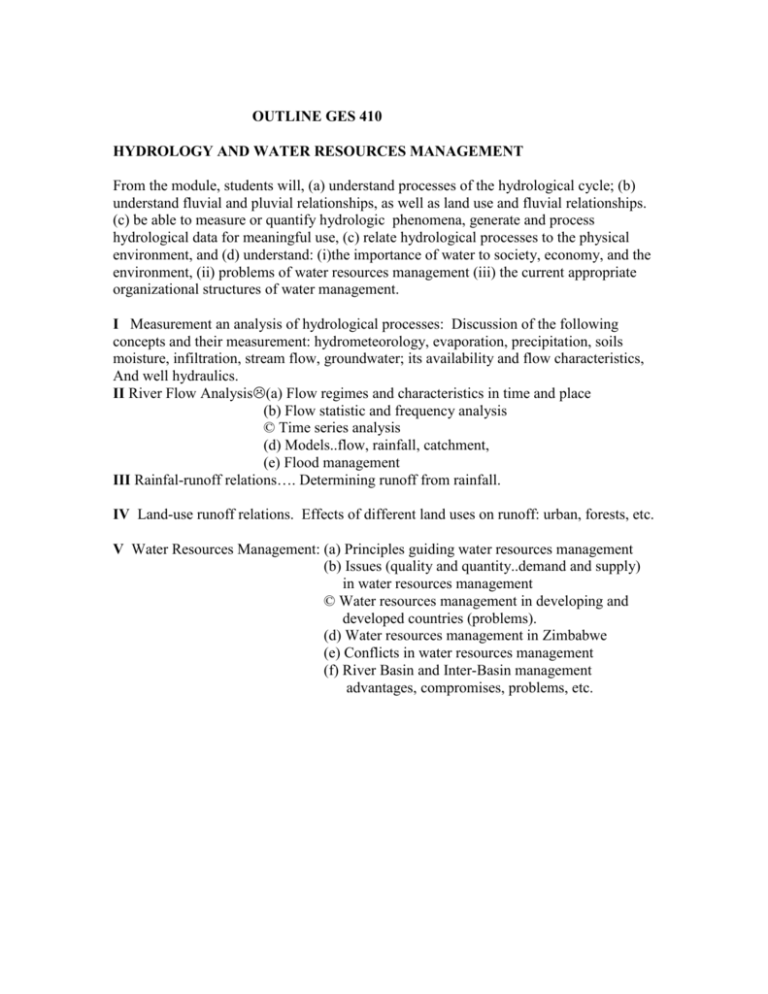
OUTLINE GES 410 HYDROLOGY AND WATER RESOURCES MANAGEMENT From the module, students will, (a) understand processes of the hydrological cycle; (b) understand fluvial and pluvial relationships, as well as land use and fluvial relationships. (c) be able to measure or quantify hydrologic phenomena, generate and process hydrological data for meaningful use, (c) relate hydrological processes to the physical environment, and (d) understand: (i)the importance of water to society, economy, and the environment, (ii) problems of water resources management (iii) the current appropriate organizational structures of water management. I Measurement an analysis of hydrological processes: Discussion of the following concepts and their measurement: hydrometeorology, evaporation, precipitation, soils moisture, infiltration, stream flow, groundwater; its availability and flow characteristics, And well hydraulics. II River Flow Analysis(a) Flow regimes and characteristics in time and place (b) Flow statistic and frequency analysis © Time series analysis (d) Models..flow, rainfall, catchment, (e) Flood management III Rainfal-runoff relations…. Determining runoff from rainfall. IV Land-use runoff relations. Effects of different land uses on runoff: urban, forests, etc. V Water Resources Management: (a) Principles guiding water resources management (b) Issues (quality and quantity..demand and supply) in water resources management © Water resources management in developing and developed countries (problems). (d) Water resources management in Zimbabwe (e) Conflicts in water resources management (f) River Basin and Inter-Basin management advantages, compromises, problems, etc.
